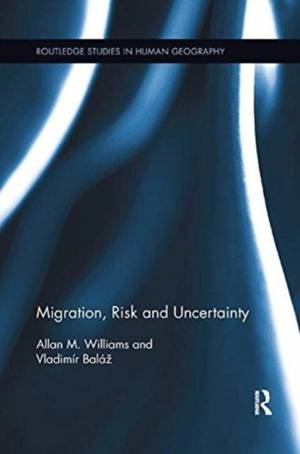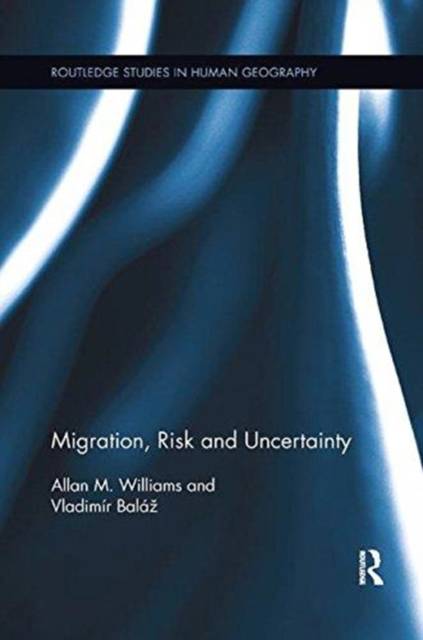
- Retrait gratuit dans votre magasin Club
- 7.000.000 titres dans notre catalogue
- Payer en toute sécurité
- Toujours un magasin près de chez vous
- Retrait gratuit dans votre magasin Club
- 7.000.000 titres dans notre catalogue
- Payer en toute sécurité
- Toujours un magasin près de chez vous
Description
Migration is one of the driving forces of economic and social change in the modern world. It is both informed by risk and a generator of risk, whether for individuals, households, communities or societies. Although the relationship between migration and risk is widely acknowledged, it has long been neglected in academic research, with a few exceptions such as household diversification strategies. Instead, risk is assumed to be implicit in economic or social models, rather than being explicitly theorised or analysed. This book represents the first major review of these key relationships. It draws on a wide range of theories - from economics, psychology, sociology, anthropology and geography - and an equally broad range of empirical material, to provide a highly original overview.
Spécifications
Parties prenantes
- Auteur(s) :
- Editeur:
Contenu
- Nombre de pages :
- 248
- Langue:
- Anglais
- Collection :
Caractéristiques
- EAN:
- 9781138547094
- Date de parution :
- 06-02-18
- Format:
- Livre broché
- Format numérique:
- Trade paperback (VS)
- Dimensions :
- 152 mm x 229 mm
- Poids :
- 340 g







